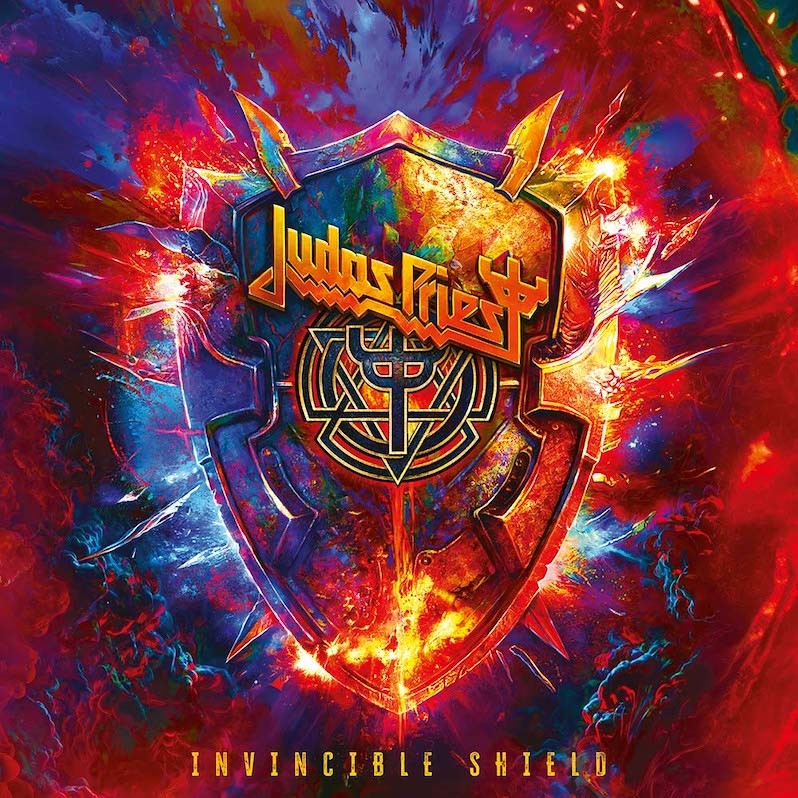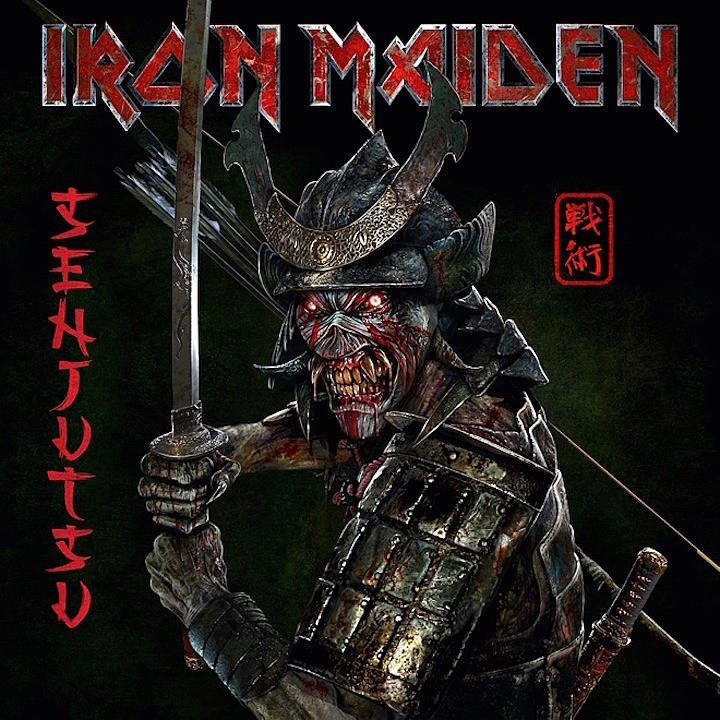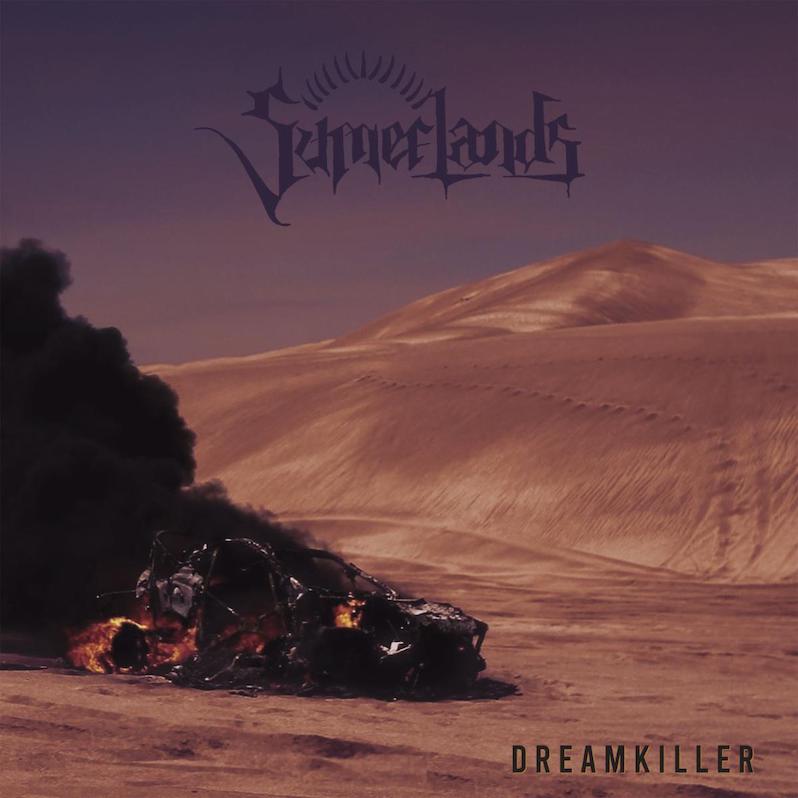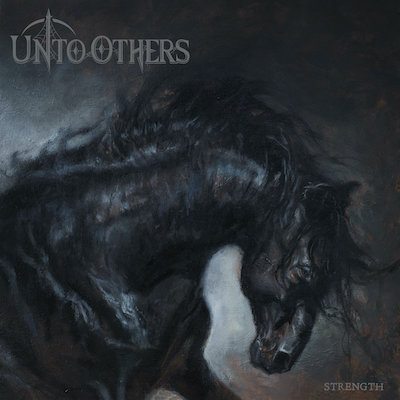Judas Priest : Invincible Shield

Judas Priest is heavy metal. We can discuss Black Sabbath‘s credit before them with properly founding the genre, a high honor even as much as it is a specious claim, historically speaking. We can dive deeper into the swirling motes of the darker wings of rock and roll, psychedelia, garage rock and the beginning strains of prog which feel in retrospect like clear predecessors if not outright early examples of the genre. And yet it was not until Judas Priest came and stripped the blues from the music, clung to groups like Sabbath and Led Zeppelin’s innovations and toughened them up, straightened them out, that we got heavy metal as we know it now. Functionally every genre of metal, save wings of doom, can be traced singularly to Judas Priest and, to the hesher, they are still the absolute unimpeachable peak. It is long said in the halls of heavy metal that the final battle will be waged between those who uphold the herald of Priest and those of Maiden, the only real conflict that matters in the world of metal. But, like all legacy acts, with their debut now 50 years in the rearview, it provides a stark and often gruesome parallax, an impossibility to hear new work through the stone of history.
Thankfully, since the addition of Richie Faulkner on guitar replacing legendary guitarist KK Downing, Priest has made it exceptionally easy to hear their contemporary form over their historical one. His addition feels a similar level of atomic bomb as drummer Scott Travis’ ascension to the throne from previous (likewise legendary) group Racer X, dropping Painkiller, one of the greatest fucking albums ever put to tape, as his debut with the group. Faulkner’s era, starting with 2014’s Redeemer of Souls before continuing on to 2018’s Firepower and now Invincible Shield, may not rise to those same hyperbolically perfect heights, but it stands comfortably shoulder to shoulder with the golden periods of ’70s Priest and ’80s Priest, no mean feat for any group.
This is a way of saying that, in a sense, Invincible Shield is a six-year delayed extension of Firepower, retaining the same post-Painkiller level of aggression applied to their ’80s sound, particularly the stellar trio of Screaming for Vengeance, Defenders of the Faith and Turbo, spiced up with the lite-prog arrangements of ’70s Priest. Here, the balance shifts closer to Defenders, my personal favorite of that era, with strong dashes of Turbo‘s pop acumen. (A brief historical lesson: the pop metal chops of Turbo were first practiced on records such as British Steel and Point of Entry, which saw the band tighten up their song structures from the proggy flourishes of their early-mid ’70s work, not just pinched from other glam metal bands!) The proceedings here are sharply catchy, ferociously so, pairing these moments of clear anthemic intent with nearly-power metal lite-prog instrumental passages and solos. Nearly every song contains a moment or two when they turn on the full thrash intent of specifically the title track of Painkiller, with the opening track “Panic Attack” even borrowing the triplet-time breakdown from that famous song to really hammer the point home. As mentioned before, the balance of elements places it closest to Defenders of the Faith of their catalog, with its likewise razor’s-edge precision threading the needle between absolutely huge choruses and really stupendous headbanging heavy metal riffing.
Vocalist Rob Halford remains an impossibly great talent, sounding better in his seventies than, without hyperbole, most vocalists especially in metal sound ever in their lives. This isn’t a terrible shock; he is the metal god, the very greatest metal vocalist of all time and the progenitor of what we look for in metal vocals overall, surpassing even Dickinson and Dio as the all-time greatest. Ian Hill, the most undersung player in the entire fucking genre and sole founding member of Priest remaining, ever as always remains a stone in the center of their universe, never stealing the show but always marrying the elements together. Glenn Tipton is, via the keen arrangements present here, allowed ample room to prove why he’s one half of, again, the greatest twin-lead guitar duo in metal history. Most of the record reads as a shockingly excellent victory lap, enjoining itself with the previous two releases from the Faulkner era not as a wild innovation but instead a high-caliber affirmation of their position at the top of the pile. It’s a shame, really, that it comes so late in their career; had a record of this caliber been released in the ’80s, it would be easy to see it as equally as legendary. Alas, time does not allow such things, but perhaps its esteem as an overall work of metal will rise in the listenership as it has already done so in the critical body.
There is one fascinating new addition to their sound, however; a tendency toward the gothic. While this is most keenly audible on bonus track “The Lodger,” although for the life of me I can’t find a copy of the album that doesn’t have the song, it is also felt once it becomes aware across a number of the other tracks. Halford’s extra-curriculars in the ’90s after he left the group involved a lot of different musical terrain his (at the time) former-bandmates were not brave enough to pursue, from out-and-out Pantera-style groove metal to explicit thrash to industrial metal and more. Gothic metal and the fringes of black metal, styles in which Halford is a divine spirit but has not directly played, always seemed to teeter on the edge of his interest, with interviews with Halford capturing him expressing an interest in pursuing them. It seems Faulkner was listening, helping to craft songs that allow his already-theatrical style to apply themselves to more grim and bleak material. In a sense, it reads like a recapturing of the intent of 2008’s Nostradamus, their deeply ambitious but ill advised double-disc prog metal record. These moments reveal the redeeming elements of that project and point toward an interesting potential vista for the shockingly still-vital Priest to explore on their next record, which will be their 20th. Material at this zenith of a legacy artist’s career is a gift and so kid gloves to a degree are worn when approaching contemporary work; here, no such gentility is needed. This is a superlative metal record, full stop. But of course it is. It’s Priest.
Label: Columbia
Year: 2024
Similar Albums:
Judas Priest : Invincible Shield
Note: When you buy something through our affiliate links, Treble receives a commission. All albums we cover are chosen by our editors and contributors.
Langdon Hickman is listening to progressive rock and death metal. He currently resides in Virginia with his partner and their two pets.




